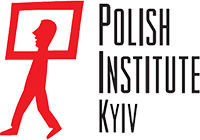On 11 November 1918, 102 years ago, Poland regained its independence. On this day, after his release from the Magdeburg Fortress, Józef Piłsudski took over military command from the Regency Council and, three days later, assumed supreme authority over civilian matters, to finally “as Commander-in-Chief of the Polish Army […] notify belligerent and neutral governments and nations” of the reappearance of “the reborn and independent Republic of Poland” on the map. After 123 years of captivity, Poland became a sovereign and internationally recognised state.
Five generations had fought in uprisings, cherished the Polish spirit and resisted Germanisation and Russification so that, in November 1918, Poles could taste freedom at last. Józef Piłsudski, Roman Dmowski, Ignacy Jan Paderewski, Gen. Józef Haller, Ignacy Daszyński, Wincenty Witos, and Wojciech Korfanty were the founding fathers of Independent Poland. Those statesmen came from diverse political backgrounds but in 1918 had a shared goal of rebuilding the Polish statehood.
The then Prime Minister Jędrzej Moraczewski described the atmosphere of this exceptional moment with these words: “One cannot convey this elation, this mad joy that the Polish people were filled with at that moment. After 120 years, the fetters burst open. Freedom! Independence! Reunion! Our own country! For ever! Chaos? Never mind. It is going to be fine. […] Who has not witnessed these brief days, who was not delirious with joy at that time with the whole nation, he will not experience the greatest joy in his life.”
The memory of the historic day from 102 years ago, when Poland regained its independence and freedom, remains a source of inspiration for us to act for the good of our country.



